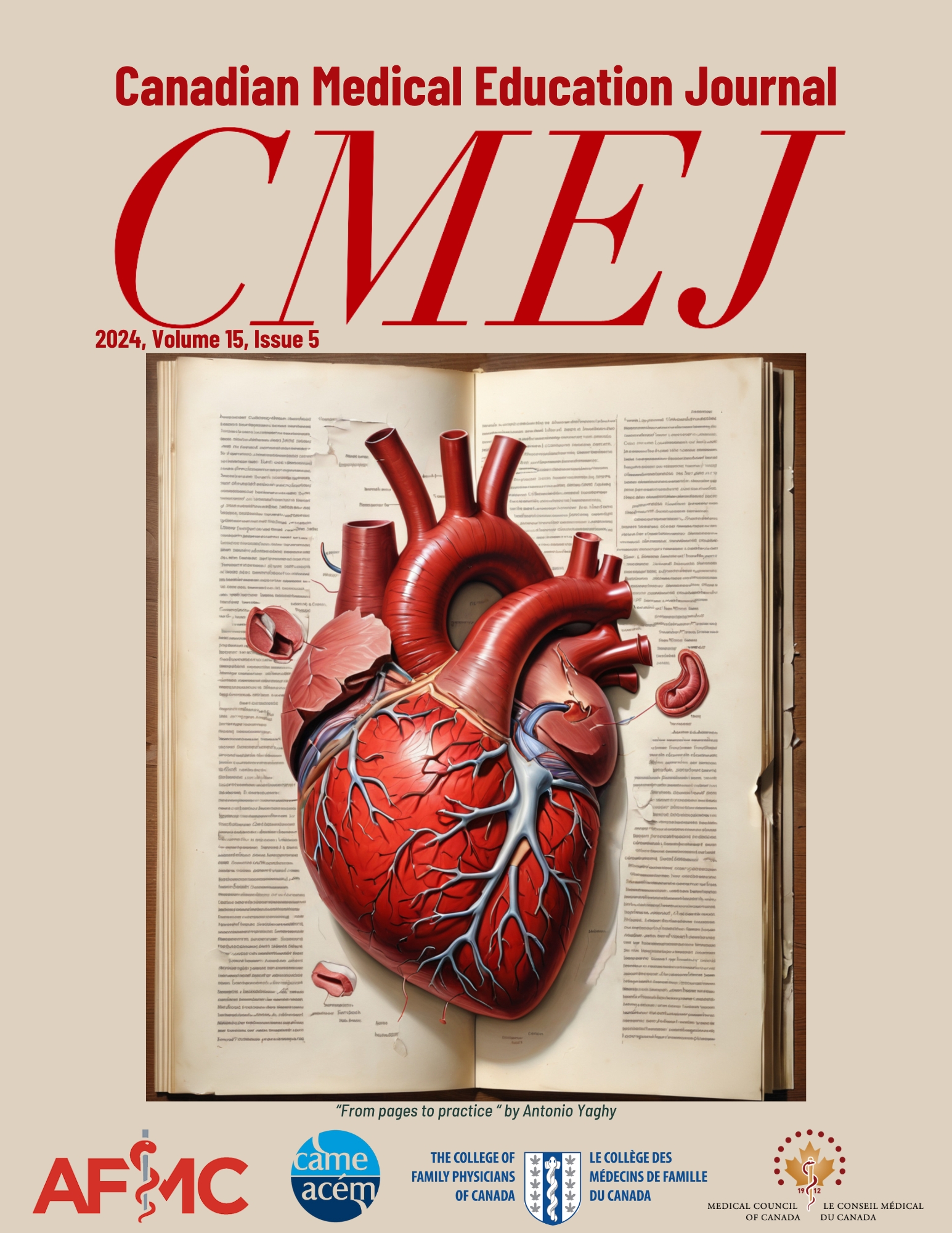Using metaphor and art to talk about death with occupational therapy students
DOI:
https://doi.org/10.36834/cmej.78201Abstract
Implication Statement
Addressing the topic of death is essential to empower healthcare professionals to work with people, but there is a lack of training in this area. This study presents the perceptions of students and educators regarding the use of metaphor and artistic creation to explore values, prejudices, emotions, and experiential knowledge related to death. The pedagogical innovation allowed students to reflect on and express their perceptions of death, while also experiencing a listening posture, thereby contributing to the development of communication skills, among others.
References
Atreya S, Datta SS, Salins N. Views of general practitioners on end-of-life care learning preferences: a systematic review. BMC Pall Care, 2022; 21(1), 162. https://doi.org/10.1186/s12904-022-01053-9
Talbot-Coulombe C, Guay M. Occupational therapy training on palliative and end-of-life care: scoping review. Brit J Occup Ther. 2020;83(10), 609–619. https://doi.org/10.1177/0308022620926935
Nan JKM, Lau BH-P, Szeto MML, Lam KKF, Man JCN, Chan CLW. Competence enhancement program of expressive arts in end-of-life care for health and social care professionals: a mixed-method evaluation. Amer J Hosp Pall Med. 2018;35(9), 12071214. https://doi.org/10.1177/1049909118765410
Lima RD, Bergold LB, Souza JDFD, Barbosa GDS, Ferreira MDA. Death education: sensibility for caregiving. Revista Brasileira de Enfermagem, 2018;71(suppl 4), 17791784. https://doi.org/10.1590/0034-7167-2017-0018
Aylwin A, Bérard L, Boivin S-M, et al. La métaphorisation pour représenter la mort - Guide à l’intention des ergothérapeutes. 21 pages. 2023. https://www.usherbrooke.ca/readaptation/fileadmin/sites/readaptation/documents/Symposium/2023/transfert_connaissance_etudiants/La_metaphorisation_pour_representer_la_mort_guide_avril_2023.pdf
Paillé P, Mucchielli A. Chapitre 11 - L’analyse thématique. Dans : P. Paillé & A. Mucchielli (Dir), L’analyse qualitative en sciences humaines et sociales (pp. 231-314). Paris: Armand Colin. 2012. https://doi.org/10.3917/arco.paill.2012.01.0231
Trede F, Macklin R, Bridges D. Professional identity development: a review of the higher education literature. Studies Higher Educ. 2012; 37(3), 365 384. https://doi.org/10.1080/03075079.2010.521237
Downloads
Published
Versions
- 2024-11-12 (2)
- 2024-07-31 (1)
Issue
Section
License
Copyright (c) 2023 Manon Guay, Alexie Aylwin, Andréane Grondin, Catherine Tremblay, Léanne Bérard, Sarah-Maude Boivin, Jessica Tremblay, Mathilde Chagnon, Élodie Mailloux, Marjolie Lessard

This work is licensed under a Creative Commons Attribution-NonCommercial-NoDerivatives 4.0 International License.
Submission of an original manuscript to the Canadian Medical Education Journal will be taken to mean that it represents original work not previously published, that it is not being considered elsewhere for publication. If accepted for publication, it will be published online and it will not be published elsewhere in the same form, for commercial purposes, in any language, without the consent of the publisher.
Authors who publish in the Canadian Medical Education Journal agree to release their articles under the Creative Commons Attribution-Noncommercial-No Derivative Works 4.0 Canada Licence. This licence allows anyone to copy and distribute the article for non-commercial purposes provided that appropriate attribution is given. For details of the rights an author grants users of their work, please see the licence summary and the full licence.











